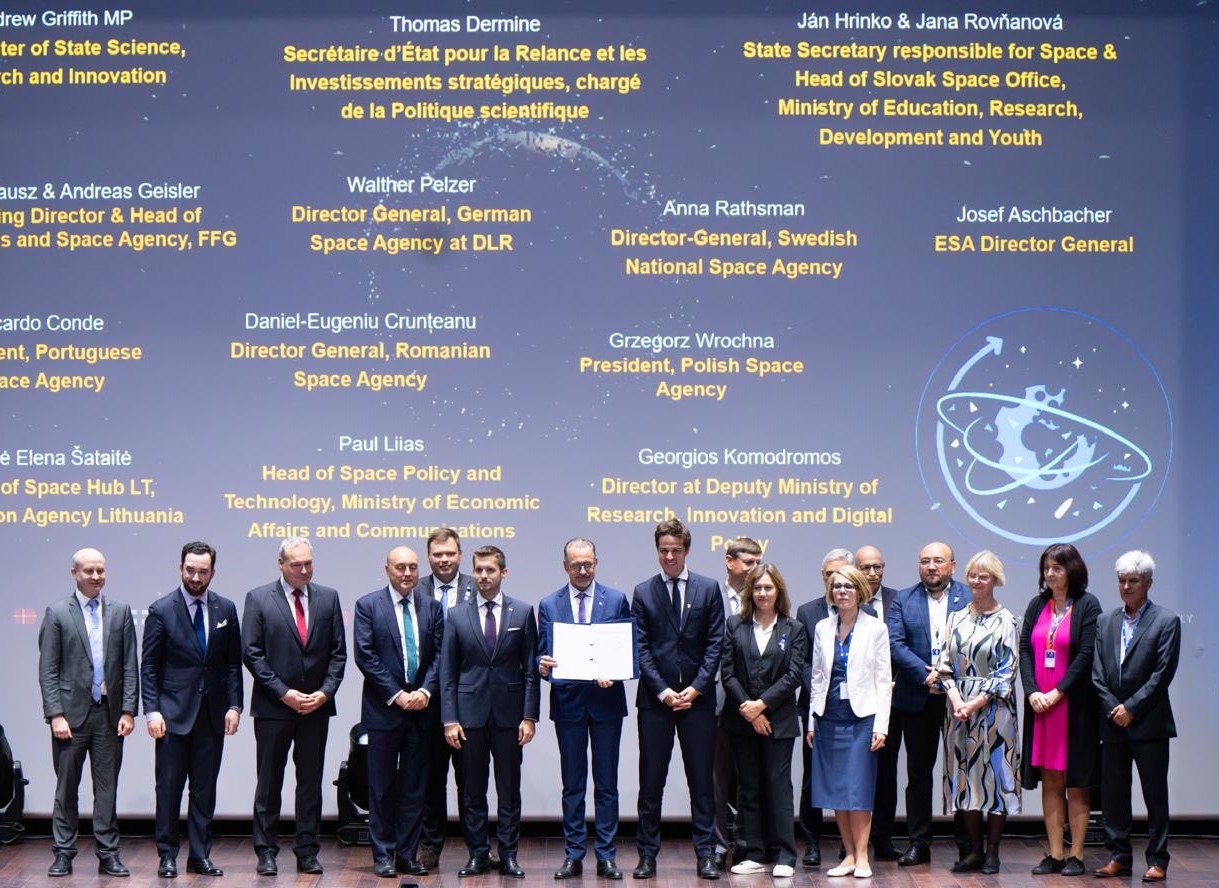WASHINGTON — A dozen countries have signed on to a charter developed by the European Space Agency to limit the creation of orbital debris, with potentially dozens of companies to follow soon.
ESA announced May 22 that 12 countries had signed the Zero Debris Charter, along with the agency itself: Austria, Belgium, Cyprus, Estonia, Germany, Lithuania, Poland, Portugal, Romania, Slovakia, Sweden and the United Kingdom. Nine of the countries are full members of ESA; Lithuania and Slovakia are associate members and Cyprus has a cooperation agreement with the agency.
ESA developed the Zero Debris Charter, a non-binding agreement, in response to a call by its member states at the 2022 ESA ministerial meeting to develop a “zero debris” approach to its missions, with the goal of no net addition of debris in orbit by 2030. The agency released a version of the charter for governments and companies to review at a European space summit meeting last November in Seville, Spain.
The two-page document calls on signatories to work towards a set of targets by 2030 intended to reduce debris. They include reducing the risks of a satellite creating debris through a collision or break up to no greater than 1-in-1,000 and keeping the risk of casualties on the ground caused by debris from a reentering satellite to “significantly” lower than 1-in-10,000. It also requests operators perform “timely” removal of satellites from low Earth orbit and the geostationary belt at the end of their lives with a probability of success of at least 99%, but does not specify how quickly satellites should be deorbited.
“The Zero Debris Charter signals Europe’s unwavering commitment to be a global leader on space debris mitigation and remediation, fostering collective action of a large community of space actors from all around the world,” said Quentin Verspieren, space safety program coordinator at ESA, in a statement. “The impact of the promise made today by these twelve countries on the sustainability of our future activities in space will be immense.”
ESA plans to follow up this signing, by national governments, with a second signing ceremony during the ILA Berlin air show in early June. “All together we have about 100 expressions of interest,” Josef Aschbacher, ESA director general, said in a May 28 interview. He declined to name any of the companies expected to sign the charter at the event but said “we have some very interesting companies that are lining up for this signing.”
The charter signing comes as the European Union is considering its first space law. The European Commission has yet to release the text of the law, which had been expected to be tabled earlier this year but is now not expected before the summer. That raised questions at a May 23 briefing after a Space Council meeting of ESA and EU member states about whether the law, which is rumored to include space sustainability provisions, might conflict with the Zero Debris Charter.
“I think it’s not either-or,” said Anna Christmann, German federal aerospace coordination and ESA ministerial council chair, at the briefing. She argued there was a role for the EU on a space law with space sustainability provisions. “But on the other hand, it’s very important that ESA is active on this going forward with, I think, really outstanding standards for zero debris.”
She added that the Zero Debris Charter was not limited to European countries. “I think there are two processes that really go together, aiming for the same goal, and it’s good that we see here the different roles that they can play.”
“This is, for me, a prime example of how the commission and ESA can very complementarily work together,” Aschbacher said at the briefing, noting the role of the European Commission on regulation and ESA’s roles in technology and raising awareness. He noted that he has already instructed ESA project managers that new missions will have to comply with provisions of the charter.
In the later interview, he said he could not comment on the proposed EU space law and any space sustainability provisions it might contain since he had not yet seen it. He said that ESA member states have already asked the agency for help interpreting the law once the draft is published to better understand how it might affect national space activities. “Certainly, there will be an impact of the space law on how we develop programs.”
Related
Read the original article here



